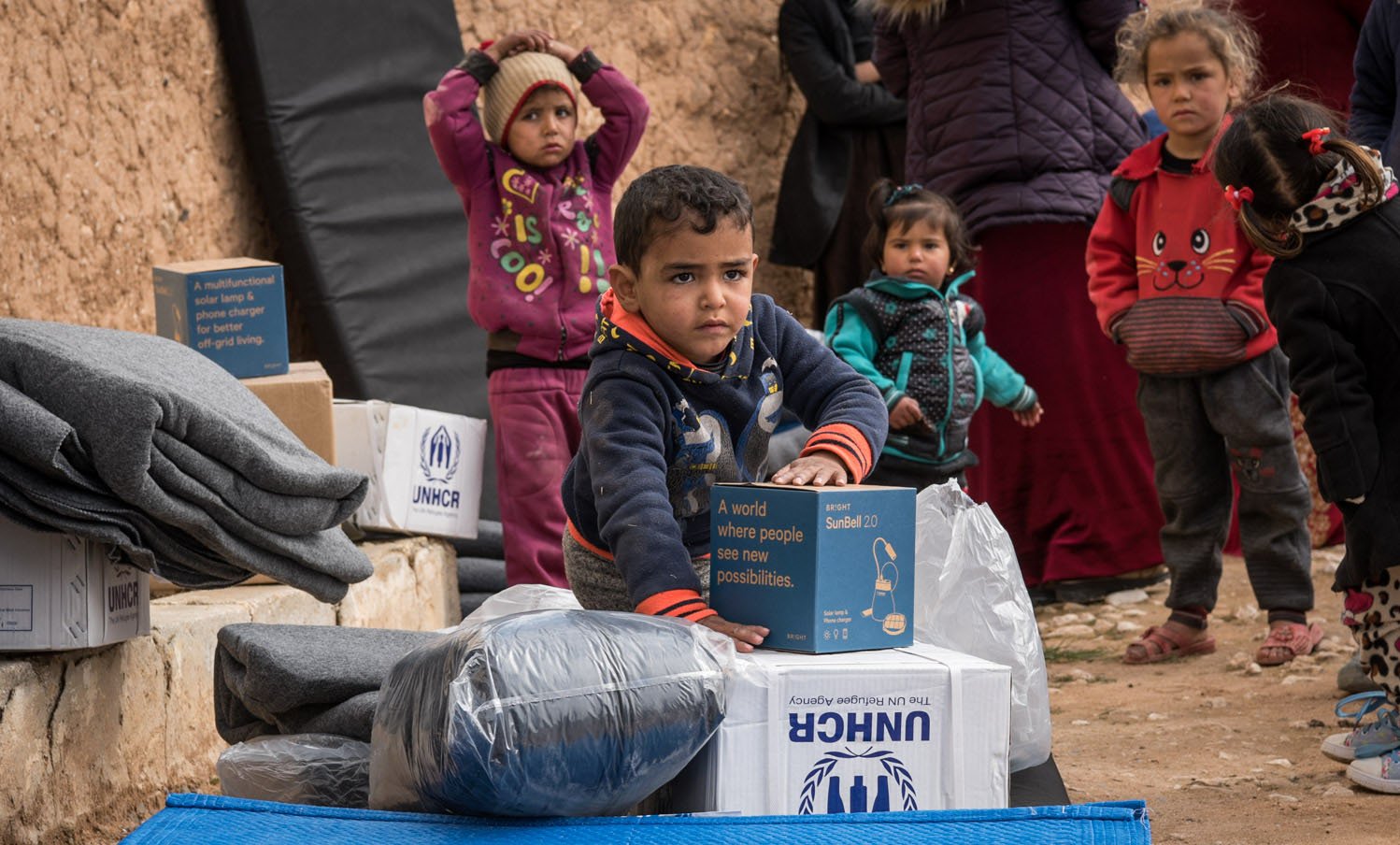Core Relief Items (CRIs), also known as Non Food items (NFIs), are items other than food distributed to those affected by natural disasters or crises. In Syria, UNHCR’s CRI kits include essential household items such as mattresses, blankets, plastic sheets, containers for water, cooking utensils and hygiene kits. Other items are added during times of extra hardship, such as rechargeable fans and portable heaters, rubber boots, sleeping bags and winter clothes.
As the displacement situation in Syria is ongoing, such items often need replacement because they got lost, damaged, have exceeded their lifespan or were left behind.
In 2017, UNHCR in Syria reached more than 3,500,000 vulnerable people with at least one Core Relief Item in 14 governorates.
Across Conflict Lines
Out of the current 13.1 million people in need, there are 5.6 million facing particularly acute needs. Amongst these, six population groups are deemed most vulnerable due to exposure to risk factors such as besiegement, hostilities, displacement and limited access to basic goods and services.
In 2017, UNHCR participated in 16 inter-agency convoys through 29 rounds, delivering multi-sectoral humanitarian assistance to internally displaced people in 21 locations in five governorates (Rural Damascus, Damascus, Homs, Idleb, Deir-es-Zour). Through crossline missions to hard-to-reach areas, 381,905 individuals received assistance.
A total of 56 cross-border convoys took place in 2017: 31 through the Bab Al Hawa crossing in Turkey and 25 through the Ramtha crossing in Jordan. These missions provided core relief items for 479,880 individuals in the Daraa, Quneitra, and Idlib governorates.
Winterization
Harsh winters are a serious challenge for many Syrians, especially in hard-fought and difficult-to-reach areas. In many places across the country, temperatures fall as low as minus 13 degrees Celsius.
On 28 February 2018, UNHCR concluded its Winterization Programme for the years 2017-2018. Since its start in September 2017, UNHCR supported 1,102,388 individuals, including reaching the new governorate Deir-es-Zour.
While UNHCR achieved its goal of reaching one million individuals for the winterization programme, work continued to provide humanitarian assistance during the winter season, aiming to reach those affected by the crisis and urgently needing help. Displaced people in hard-to-reach areas and people with specific needs and vulnerabilities such as unaccompanied minors, older persons, female-headed households, persons with disabilities or mental health problems and individuals suffering from severe health conditions and chronic diseases were prioritized.

